Articles By Anand K Verma
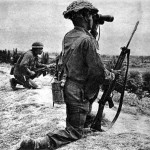
1971: Finest Hour for the Indian Intelligence Agencies
By: Anand K Verma | Issue: Vol. 27.1 -Mar 2012 | Date: 11 Dec , 2020
Many are of the opinion that the year 1971 was the most glorious year of the Republic with a focused government in operation, well-thought out plan, adjusting admirably to the unfolding of events...
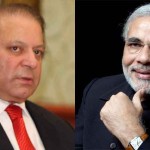
The Insoluble Equation: Indo-Pak Relations
By: Anand K Verma | Issue: Book Excerpt: Reassessing Pakistan | Date: 25 May , 2014
The two-nation theory has mired Indo-Pak relationship into an intractable problem in Kashmir. More than a half-century has gone by after independence and four wars fought during this period but...
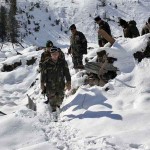
Siachen: An episode to Remember
By: Anand K Verma | Issue: Vol 22.3 Jul-Sep 2007 | Date: 21 May , 2014
In the troubled relationship of India with Pakistan, there have been very few occasions when the latter desired a genuine end to some of the problems. Siachen belongs to this rarest of the rare...
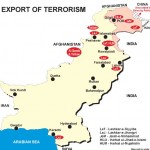
Pakistan: Fault Lines
By: Anand K Verma | Issue: Vol 27.3 Jul-Sep 2012 | Date: 29 Sep , 2012
A reality deficit of staggering proportions now stands generated in Pakistan which, even while promoting a culture of militarism and religious bigotry, erodes the foundation on which democracy can...
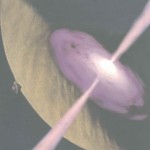
Is Indian Intelligence being made the whipping boy?
By: Anand K Verma | Issue: Vol 24.2 Apr-Jun 2009 | Date: 29 Jun , 2012
Indian intelligence is frequently in the news, often for the wrong reasons. It is a favourite kicking target for a large number of those who compulsively articulate, like the media, political...

National Security: Decision Making
By: Anand K Verma | Issue: Vol 14.4 Oct-Dec 1999 | Date: 28 Dec , 2011
The Indian State as it exists today is a consequence of the British presence in India. Prior to that, throughout history, the sub continental land mass was hardly ever a State in geographical...

Asian Security Environment: India's options
By: Anand K Verma | Issue: Vol 25.1 Jan-Mar 2010 | Date: 16 Dec , 2011
Asian security environment is in a state of deep turmoil. The single event which has occasioned it, is the giant rise of China during the past couple of decades, reaching higher and higher levels...

Pakistan's Emergence as the Epicentre of Terrorism
By: Anand K Verma | Issue: Net Edition | Date: 23 Nov , 2011
The idea of Pakistan survives on the premise of enmity towards India. This premise came into existence well before Pakistan became a reality. Some in Pakistan believe that the country started...

Islam and its many trends
By: Anand K Verma | Issue: Vol 24.1 Jan-Mar 2009 | Date: 16 Oct , 2011
Except the war zones, palestine, Iraq and Afghanistan and the proxy war zones Kashmir and India, for quite sometime the rest of the world has not witnessed a major terrorist incident. This is...
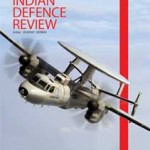
The Arab Spring: opening a pandora's box?
By: Anand K Verma | Issue: Vol. 26.3 July - Sept 2011 | Date: 02 Oct , 2011
The so called Arab spring represents a massive popular movement, not seen or predicted in the Arab world ever since the Suez sponsored Nasserite upheaval. It is as significant as the falling of...
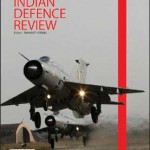
Forebodings in J&K over spring
By: Anand K Verma | Issue: Vol 26.2 Apr-Jun 2011 | Date: 18 Jul , 2011
The advent of spring in Kashmir is creating apprehensions in some quarters in the State. Will there be a repeat of turmoil and tension, which marked the post spring period from 2008 to 2010? In...

Intelligence Reform: no gains without a cultural shift
By: Anand K Verma | Issue: Vol 26.2 Apr-Jun 2011 | Date: 01 Jul , 2011
The reforms, as and when the discourse reaches the stage of finality, should also focus on the role of the National Security Adviser (NSA) about which there is much confusion today. Is he an...
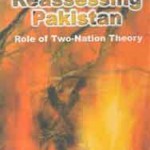
Two-Nation Theory Converts into Islamic Ideology - II
By: Anand K Verma | Issue: Book Excerpt: Reassessing Pakistan | Date: 14 Jun , 2011
Demand for Nizam-i-Mustafa: In the elections in 1970, Zulfiqar Ali Bhutto’s Pakistan People’s Party had emerged as the single largest party in West Pakistan. Bhutto had denounced the Tashkent...

Two-Nation Theory Converts into Islamic Ideology - I
By: Anand K Verma | Issue: Book Excerpt: Reassessing Pakistan | Date: 13 Jun , 2011
Jinnah’s Secular Approach:In the final analysis it was the religious sentiment that was exploited by the Muslim League to secure Pakistan but Pakistan was not intended to be a theocratic state...

Germination of Pakistan - II
By: Anand K Verma | Issue: Book Excerpt: Reassessing Pakistan | Date: 03 Jun , 2011
Emphasis on Muslims as a Distinct Entity Thanks to the efforts of Syed Ahmed Khan, separate electorates and the political ambitions of League leaders including Jinnah, some academic interest had...

Germination of Pakistan - I
By: Anand K Verma | Issue: Book Excerpt: Reassessing Pakistan | Date: 02 Jun , 2011
Entry of Islam into the Subcontinent: The embryo of Pakistan, for Mohammed Ali Jinnah, its founder, was conceived the moment the first Muslim set his foot on the subcontinent.1 That was in AD 712...

Pakistan: The cost of two-nation theory
By: Anand K Verma | Issue: Book Excerpt: Reassessing Pakistan | Date: 06 May , 2011
Mohammed Ali Jinnah is on record, claiming that he brought about Pakistan single-handedly. Had he not been born would Pakistan exist today? Historians have always found the ‘Ifs’ of history...

Pakistan Armed Forces: The Other Pillar
By: Anand K Verma | Issue: Book Excerpt: Reassessing Pakistan | Date: 25 Apr , 2011
The Muslim League whose campaign led to the birth of Pakistan could hardly be called a grass roots party until after 1940 when the Pakistan Resolution was adopted. The League might have operated...

Fight against Terrorism and the Moral Dilemmas
By: Anand K Verma | Issue: Net Edition | Date: 26 Jan , 2011
Terrorism is a phenomenon operating on both sides of morality. Dilemmas, therefore, arise not confined to any one side. This is best apparent by examining some well known cases. Take the case...

International Terrorism: A Perspective to Current Scenarios
By: Anand K Verma | Issue: Vol 22.3 Jul-Sep 2007 | Date: 27 Dec , 2010
Terrorism has undergone what may be equivalent to genetic changes. In the earlier decades, its agenda was mostly political, such as class questions, national liberation and urban or anarchic...


